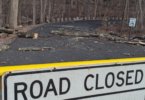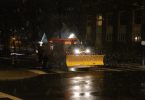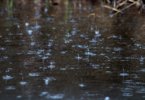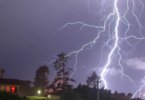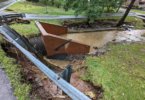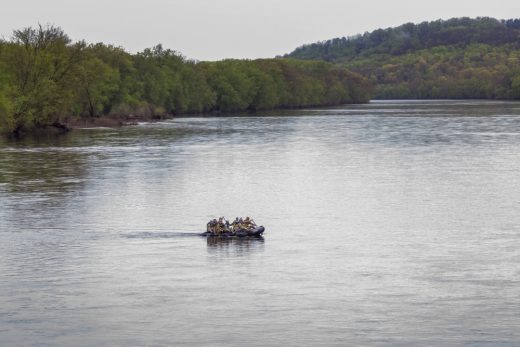
With the region experiencing over 40 consecutive days without rainfall, water levels across local waterways, ponds, and lakes have significantly declined and prompted concern from officials.
In response, the Delaware River Basin Commission has scheduled a special hearing on November 19 at 1:30 p.m. to gather public input on the ongoing drought conditions and discuss potential emergency measures.
“Many areas in the Delaware River Basin continue to experience significantly below-normal precipitation with resulting effects on streamflows, groundwater levels and reservoir storage,” said Delaware River Basin Commission Executive Director Steve Tambini. “These conditions have already prompted the states of New Jersey, New York, Delaware and Pennsylvania to declare drought watches or warnings in most or all of the counties that lie within the basin.”
To ease some of the strain, the commission has authorized controlled releases from federal reservoirs.
Amy Shallcross, the Delaware River Basin Commission’s water resource operations manager, reported that approximately 1.12 billion gallons of water have been released from Beltzville Reservoir in Carbon County to maintain the mandated flow levels of the Delaware River at Trenton. Additional water from Blue Marsh Reservoir in Berks County is also being utilized.
In Bucks County, where conditions have escalated to a severe drought status per the U.S. Drought Monitor, county authorities have implemented a burn ban following recommendations from fire chiefs.
The county has already dealt with several major brush fires that required responses from multiple municipalities and state wildland firefighters, said Bucks County Commissioner Bob Harvie, a Democrat.
The large brush fires have have had various causes, including human activity and natural events. One fire was even sparked by an electrical transformer malfunction, Harvie said.

The ban restricts large-scale burning activities like bonfires and yard waste disposal.
The Pennsylvania Department of Environmental Protection provided the below tips to conserve water:
- Fix leaky faucets, toilets, and hoses.
- Sweep driveway, steps, sidewalk instead of hosing off.
- Properly maintaining septic systems and private wells.
- •Always turn off water when not using (examples: in between dishes while washing by hand, when brushing teeth, when shaving).
- Run the dishwasher and washing machine only when loads are full.
- Take shorter, cooler-temperature showers (aim for 5 minutes).
- Wash laundry in cold water.
- If you like drinking cold water, keep a pitcher in the fridge rather than running until the tap is cold.
- Thaw frozen food in the refrigerator or sitting in water, do not run fresh water over it.
- Wash the car with a bucket or use a professional car wash. Wash your car on the lawn rather than the driveway.
- Replace appliances with water efficient, WaterSense labeled products. Toilets, dishwashers, washing machines, and shower heads can all be efficient.
- If you have a pool or hot tub, keep it covered when not in use to prevent evaporation.
- Scatter leftover ice on your lawn.
- Take steps to reduce energy consumption – water is used at many points in the process of producing electricity.
Advertisement

Convenient Legal Access to High Quality Cannabis Just A Few Minutes Away!




